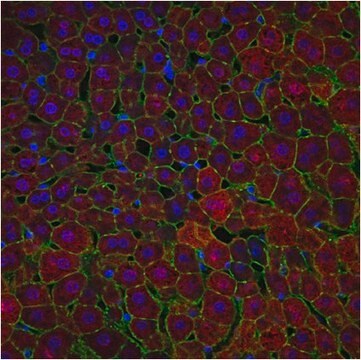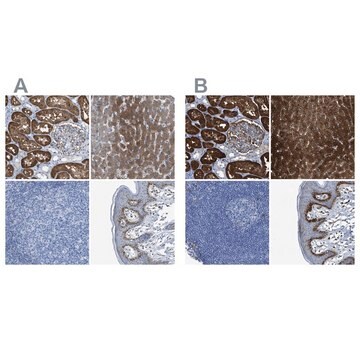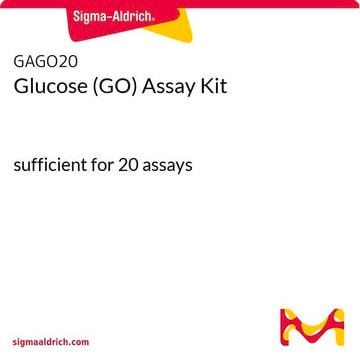MAK502
Galactose Assay Kit
sufficient for 100 colorimetric or fluorometric tests
Sign Into View Organizational & Contract Pricing
Select a Size
All Photos(1)
Select a Size
Change View
About This Item
UNSPSC Code:
12161503
NACRES:
NA.84
Recommended Products
Quality Level
application(s)
cosmetics
food and beverages
pharmaceutical
detection method
colorimetric
fluorometric
relevant disease(s)
pediatric diseases; neonatal diseases
shipped in
wet ice
Storage temp.
−20°C
General description
Galactose (C6H12O6) is a monosaccharide that is found in dairy products, sugar beets, gums and mucilages. It is also synthesized in mammals, where it forms part of glycolipids and glycoproteins in several tissues. It forms the disaccharide lactose when combined with glucose.
Features and Benefits
- Linear detection range: 10 to 1000 µM galactose for the colorimetric assay and 10 to 100 µM for the fluorometric assay.
Suitability
The kit is suitable for determining galactose concentrations in serum, plasma, urine, saliva, milk, culture medium, food and beverage products, and other biological samples, as well as for studying the effects of drugs on galactose metabolism.
Principle
The Galactose Assay Kit uses specific enzyme-coupled reactions to form a colored product. The color intensity at 570 nm or fluorescence intensity at λEx = 530 nm/λEm = 585 nm is directly proportional to the galactose concentration in the sample.
signalword
Danger
hcodes
Hazard Classifications
Aquatic Acute 1 - Aquatic Chronic 2 - Resp. Sens. 1
Storage Class
10 - Combustible liquids
wgk_germany
WGK 3
Choose from one of the most recent versions:
Certificates of Analysis (COA)
Lot/Batch Number
It looks like we've run into a problem, but you can still download Certificates of Analysis from our Documents section.
If you need assistance, please contact Customer Support.
Already Own This Product?
Find documentation for the products that you have recently purchased in the Document Library.
Our team of scientists has experience in all areas of research including Life Science, Material Science, Chemical Synthesis, Chromatography, Analytical and many others.
Contact Technical Service








